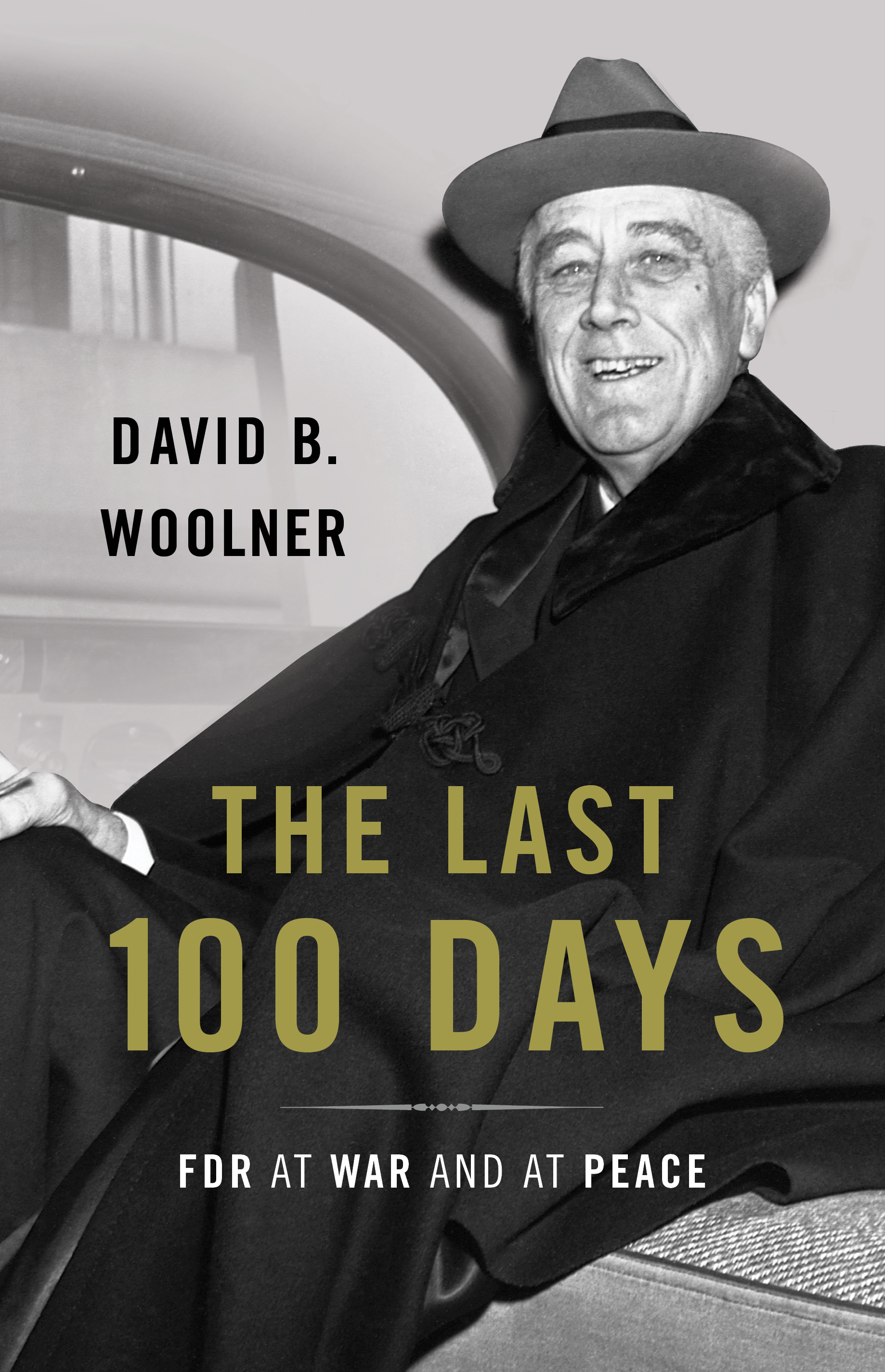By Roosevelt University
Many Americans and people around the world remember Franklin Delano Roosevelt’s famous first 100 days in office, but few are aware of the many challenges he faced in the final months of his presidency, which is the focus of historian David Woolner’s, The Last 100 Days: FDR at War and at Peace, released in December.
Among many highlights, the book cites confidential memos from Roosevelt’s doctors, recently declassified records from the Office of Strategic Services, as well as previously unreleased information from the president’s daily calendar and contact list.
Woolner pulls back the curtain on everything from Roosevelt’s private life to what was involved in facing Stalin at the Yalta Conference in 1945.
Accounts of FDR pushing for the establishment of the United Nations and the president’s support for the creation of a homeland for Jews in Palestine are featured as well in the book, which has received rave reviews from critics and historians alike who cite both its “precision” and “authenticity.”
Woolner will appear at a discussion and book signing on Wednesday at Roosevelt University, at 430 South Michigan Avenue.

“This book provides insight on how Roosevelt navigated difficult terrain during the final months of World War II and showcases his superb leadership,” said Margaret Rung, professor of history and director of the Center for New Deal Studies at Roosevelt University. “It also serves to emphasize the long arc of his leadership, which progressed from FDR’s first 100 days in 1933 to his last 100 days in 1945. Through Woolner’s study, we appreciate the incredible mark FDR left on the world.”
–
See also, from James Hill in the Washington Post:
“There is a point, not very far into David B. Woolner’s excellent accounting of Franklin D. Roosevelt’s last months in office, where one realizes that this history, intentional or not, is going to be a presidential death watch. ‘Was he too ill during these last months to properly carry the burdens of office?’ the author asks in his preface. ‘Did Stalin dupe him at Yalta because FDR was too weak to resist? Should he have run for a fourth term? Did he ever admit to himself how unwell he was? What role did the members of his family or his closest confidants play – if any – in his ability to lead despite his reduced capacity for work?’
“All valid questions that Woolner seeks to answer in The Last 100 Days, a remarkably well-researched book on the president that Americans consistently rank among the greatest. Indeed, FDR had an amazing ability to maintain a Herculean schedule, as a self-described juggler who could handle domestic pressures as well as, later, a two-front world war that would have taxed the abilities of mere political mortals.”
–
Comments welcome.
Posted on February 15, 2018


